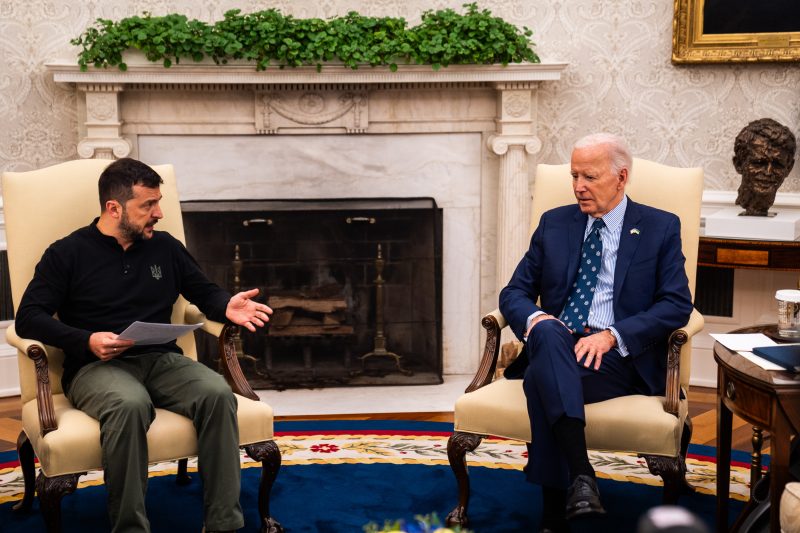Ukrainian President Volodymyr Zelensky’s recent appeal to U.S. President Joe Biden has thrust him into the midst of a contentious partisan divide within American politics. Zelensky’s urgent call for additional support from the United States comes at a time when tensions between Democrats and Republicans are running high, with each side interpreting international affairs through the lens of their own political ideology.
The situation highlights the challenges that foreign leaders face when navigating the complex landscape of bipartisan politics in the United States. Zelensky’s plea for increased military aid and assistance in countering Russian aggression has been met with varying responses from American lawmakers on both sides of the aisle.
Democrats, traditionally more inclined towards diplomacy and multilateral approaches to foreign policy, have been generally supportive of Zelensky’s appeal. Many Democratic lawmakers have emphasized the importance of standing with Ukraine in the face of Russian aggression and have called for a robust U.S. response to support the Ukrainian government.
On the other hand, some Republicans have raised concerns about the potential risks and costs of deepening U.S. involvement in the conflict between Ukraine and Russia. They have questioned the strategic implications of escalating tensions with Russia and have called for a more cautious approach to the situation.
The partisan split over how to respond to Zelensky’s appeal reflects broader divisions within U.S. foreign policy debates. Historically, Republicans have tended to be more skeptical of U.S. engagement in international conflicts and more focused on prioritizing American interests above all else. Democrats, on the other hand, have often emphasized the importance of upholding democratic values and promoting human rights in their approach to foreign affairs.
Zelensky’s efforts to navigate this partisan divide underscore the delicate balance that foreign leaders must strike when seeking support from the United States. By appealing directly to President Biden and engaging with lawmakers from both parties, Zelensky is aiming to build a broad coalition of support for Ukraine’s efforts to defend its sovereignty and territorial integrity.
As the situation continues to unfold, it will be essential for policymakers on both sides of the aisle to set aside their partisan differences and work together to formulate a coherent and effective response to the crisis in Ukraine. Only through a united and bipartisan approach can the United States effectively support Ukraine and address the broader challenges posed by Russian aggression in the region.
